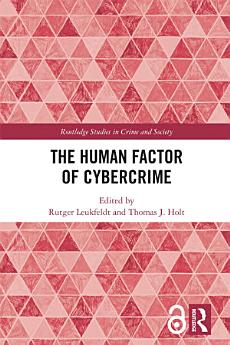The Human Factor of Cybercrime
About this ebook
The distinct nature of cybercrime has consequences for the entire spectrum of crime and raises myriad questions about the nature of offending and victimization. For example, are cybercriminals the same as traditional offenders, or are there new offender types with distinct characteristics and motives? What foreground and situational characteristics influence the decision-making process of offenders? Which personal and situational characteristics provide an increased or decreased risk of cybercrime victimization? This book brings together leading criminologists from around the world to consider these questions and examine all facets of victimization, offending, offender networks, and policy responses.
Chapter 13 of this book is freely available as a downloadable Open Access PDF at http://www.taylorfrancis.com under a Creative Commons Attribution-Non Commercial-No Derivatives (CC-BY-NC-ND) 4.0 license.
About the author
Dr. Rutger Leukfeldt is senior researcher and cybercrime cluster coordinator at the Netherlands Institute for the Study of Crime and Law Enforcement (NSCR). Furthermore, Rutger is director of the Cybersecurity & SMEs Research Center of the Hague University of Applied Sciences. Over the last decade, Rutger worked on a number of cybercrime studies for the Dutch government and private companies. Rutger is currently the chair of the Cybercrime Working Group of the European Society of Criminology (ESC).
Dr. Thomas J. Holt is a professor in the School of Criminal Justice at Michigan State University specializing in cybercrime, cyberterrorism, and the police response to these threats. His work has been published in a range of journals, and he is also the author of multiple books and edited works.




